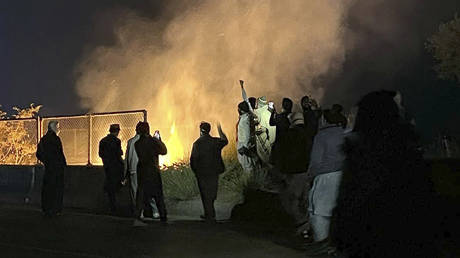Even after Sunday’s stunning loss in Cleveland, the Green Bay Packers must still be considered a legitimate contender in the NFC — meaning everything that happens week to week must be viewed with a long-term lens. A road loss to an AFC opponent in September isn’t going to sink the 2025 Packers. Great teams (and even future champions) get humbled early in the season all the time. But two things coming out of the Packers’ loss must be viewed as long-term concerns for a team with Super Bowl aspirations: shaky all-around offensive line play, and another meltdown on special teams.
The Packers couldn’t block the Browns in either the run or pass game and suffered a decisive loss along the line of scrimmage on offense. And once again, in what has to be viewed as a recurring trend, mistakes on special teams end up deciding the game.
Getting to a Super Bowl is incredibly difficult. And the playoff gauntlet — assuming the Packers get there — is going to include dominant defensive lines and disciplined teams that can and will make a special teams blunder hurt.
On Sunday, the Packers offensive line struggled to protect Jordan Love and create running room for Josh Jacobs. Love took five sacks, was under pressure on almost half of his dropbacks and often had to throw quick or short to negate the pass-rush. Jacobs rushed 16 times for only 30 yards, and the Packers gained only 55 rushing yards on 22 designed rushes to running backs.
An offense so reliant on the run game and creating explosive plays down the field in the passing game could do neither in Cleveland. Despite having 10 possessions, the Packers managed only two scoring drives and finished with 10 points. The offense averaged 3.8 yards per play, the fifth-worst finish of the Matt LaFleur era.
Injuries, of course, are playing a big factor. Zach Tom was injured in Week 1, missed all of Week 2 and exited Sunday’s loss after playing just one snap. Aaron Banks was injured in Week 1, missed all of Week 2 and exited Sunday’s loss a little before halftime. Without two starters available for much of the season, the Packers have have to shuffle in Jordan Morgan, rookie Anthony Belton and Darian Kinnard. Offensive lines thrive on continuity, and there’s been none of it in Green Bay to start 2025. Elgton Jenkins and Rasheed Walker missed practice time during training camp, too.
At his best, Love isn’t a dink-and-dunk passer. He wants to attack down the field and hit big plays off play-action. None of that is possible if you can’t protect and the run game isn’t working. It’s probably fair to wonder if the run game is going to be a season-long problem considering Jacobs is averaging only 3.1 yards per carry through three games. An offensive line that struggled to consistently run block last season hasn’t gotten any better to start 2025, and Jacobs has had to work hard for every yard. And Love has been under pressure on just over 40 percent of his dropbacks, so the pass protection has been inconsistent, too.
At some point in January, the Packers are going to run into a team that can replicate some or most of what the Browns accomplished up front on Sunday (although Myles Garrett is a 1-of-1 player). Will the offensive line have a counter punch? Can the Packers play their preferred brand of football (or even a successful brand of football) when facing a deep, disruptive defensive line?
And then there’s Rich Bisaccia’s special teams. Just one big mistake can turn a game. It’s been a lesson learned over and over again in Green Bay over the last two decades, but also more recently. In Week 18 of last season, the Packers gave up a punt return touchdown to the Bears and lost a close game. In the postseason, the Packers fumbled a kickoff return leading to a touchdown and missed a field goal in a loss.
On Sunday, the Packers nearly had their first field goal attempt blocked and then had what should have been the game-winning field goal actually blocked with under 30 seconds to go. Instead of going up 13-10 and likely escaping Cleveland with a hard-fought and ugly win, the Packers handed the ball back to the Browns near midfield, and Andre Szmyt hit the game-winning field goal from 55 yards out as time expired. A stunning ending could have been entirely avoided if not for a massive special teams mistake.
You can bet every single team on the Packers schedule the rest of the way will be watching the tape of Sunday and then trying to cave in the field goal protection on every McManus kick. In big games, and especially postseason games, losing three points on a block or miss — or giving up a long kickoff return, as the Packers did in Week 2 — can decide the game.
The Packers have some issues to work through, but also 14 weeks to get things fixed. Champions play their best football in December and January. It’s still September. There is so much football left to be played, and if the Packers are truly Super Bowl caliber, they will gradually improve over the next few months, fix any potential fatal flaws and be fully prepared to run through the playoff gauntlet in all three phases.
But it’s fair to be concerned about the present, where the battered offensive line looks shaky and the special teams continue making critical mistakes in games. The Packers don’t want the foundations of Sunday’s loss to be a harbinger of things to come in future big games. Improving up front on offense and cleaning things up in the third phase look like the keys moving forward for LaFleur’s team.
This article originally appeared on Packers Wire: 2 big concerns for Packers coming out of stunning loss to Browns





